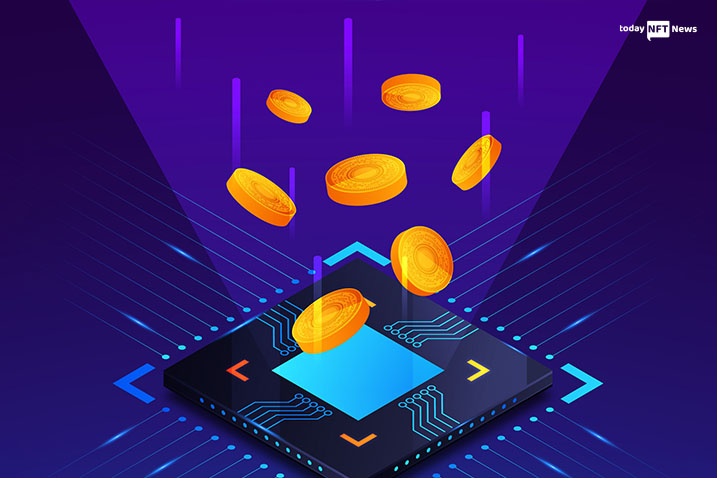Projects and applications with focus on communities and social identities are needed for blockchains to remain at the center of collective and enchanting ecosystems. To acknowledge the problem, Ethereum’s co-founder, Vitalik Buterin; strategy counsel at FlashBots, Puja Ohlhaver and political economist and social technologist, E. Glen Weyl, brought the theory of soulbound tokens in “Decentralized Society: Finding Web3’s Soul,” a paper.
The authors believe that soulbound tokens offer the fundamentals for DeSoc, decentralized society, a purposeful sociality where souls and communities gather bottom-up like developed traits of each other to originate plural network goods besides pieces of intelligence at several scales. Soulbound tokens are publicly provable as well as non-transferable NFTs that display the commitments, credentials and affiliations of an individual.
In soulbound NFTs, ‘Souls’ are the accounts or wallets to which soulbound tokens or non-transferrable tokens are tied permanently. However, when soulbound tokens acquired by a Soul are possible to be issued by other Souls who happen to be correspondents to such relationships, is when the real power of the mechanism unveils.
Based on the paper, the idea of ‘plural network groups’ means interconnections as well as communications that lie in the networks and act as the pillars of economic growth.
Soulbound tokens- how do they work?
These tokens might aid Web3 network to utilize non-transferrable tokens in the form of reputation indicators instead of depending on money-based frameworks for the same. For example, to provide an undercollateralized loan, presently, the lender approves the account balances, repayment history and credit scores of the borrower bank.
Since soul bound tokens display the credential of an individual, to seek an undercollateralized loan, reputation will be the collateral.
Coming to understanding how to verify one’s reputation in a blockchain-focused uncertain system as well as how SBTs work in the Web3 space, taking the DAO voting system as an example is helpful. On the basis of total tokens a member has, a number of DAO governance models allocate voting power.
When SBTs are issued by DAOs, priority might be given to reputation over the number of tokens a member has. Through interactions of users in the community, reputation can be confirmed.
For example, to display the reputation of every on-chain referendum member who votes in, trophies obtained from the Governance Rewards program of Kusama can be used. On that note, trophies act as a visual depiction of the on-chain activity of a member in Polkadot and Kusama DAOs, which tends to be enough security for an undercollateralized loan. Moreover, DAOs against Sybil attacks can be protected by a reputation-themed voting system.
A Sybil attack has one or multiple bad actors controlling the majority of the governance tokens to benefit from the project. As SBTs are publicly confirmable, they safeguard DAOs from such bad actors.
Certain examples demonstrate how SBTs can be used in the Web3 space. BAB, Binance Account Bound, is going to be the very first soulbound token issued on the BNB chain. There’s no monetary value to the BAB token and can’t be transferred. Also, it will act as a digital confirmation solution for those Binance customers who finished the KYC requirements.
Applications of soulbound tokens?
SBTs have a number of use cases in Web3. Some of them include-
- NFT ownership: Artists can keep away from fake people who sell NFTs disguised as popular artists. Soulbound tokens will enable buyers to track the social source and blockchain integration will allow them to trace when a certain work was made.
- Borrowers’ credit history confirmation: SBTs can also be used to represent traditional credit reports to provide lenders access to the complete credit profile of a borrower. Upon repayment of the loan, the soulbound token can be deleted or replaced by payment documentation. This way, it is impossible to hide ongoing obligations.
- Job openings: SBTs that display the education qualifications of a candidate such as degree along with professional certificates as well as work history can be utilized as proof of skill to fulfill the HR requirements of a company.
- Souldrops: Souldrops can be issued by deploying soulbound tokens. For example, to developers with 5 among the last 10 conference attendance SBTs acting like a POAP or proof of attendance protocol. POAP’s, a unique NFT, can be utilized by individuals to show that they attended a recorded or live event.
- Gaming: SBTs can be used to track the Web3 activity of a user upon conversion into non-transferrable reputation tokens in game avatars that are possible to level up in this method. What this means is that rather than playing the game, one can level up which means giving their avatar the experience and skills that can’t be transferred.
Advantages of soulbound tokens
- SBTs can be used for matters such as credential verification, as the information is reproduced on the blockchain permanently; hence, nobody can fabricate it.
- SBTs can help to publicly verify certificates or awards earned by a person.
- Confidence can be built in the public and token owners as authenticity can’t be bought via SBTs.
- Credit histories of borrowers can be checked as well as their credit scores can be evaluated to find out how much they can purchase, all because of soulbound NFTs.
- Web3 projects are stopped from turning into a cash opportunity upon making digital depictions non-tradable, which means one can’t purchase NFTs and must put efforts to get them.
Risks associated with soulbound tokens
Moving on to the negative side of SBTs, the present wallet mix is not suitable for soulbound tokens, as it lacks community recovery methods. Having said that, community recovery wallets require an extensive range of soulbound tokens spread across multiple communities to retrieve lost Souls.
In terms of the solutions to this, community recovery strategy is helpful wherein private keys of a Soul can be acquired via agreement by an eligible majority of the community from which the Soul belongs. However, certain organizations or individuals might realize interests that are not in line with their own beliefs, resulting in harassment, trolling and violence and pointing to issues related to privacy as the personal details of a person are leaked.
SBT-dependent credit systems can also result in dystopian ecosystems such as China’s social credit system, where certain social groupings are prohibited due to the presence of certain SBTs.
What does the future say?
Though SBTs look interesting, they are new and can’t take the place of NFTs. However, they can act as alternative methods of identity control; thus, enabling DAOs to engage with the members of the community in a better way.
Whether NFTs and SBTs will co-exist can’t be concluded until DeSoc transforms into a reality in the Web3 ecosystem or until SBTs prove to alone act as digital identity tokens in the vast decentralized world.









